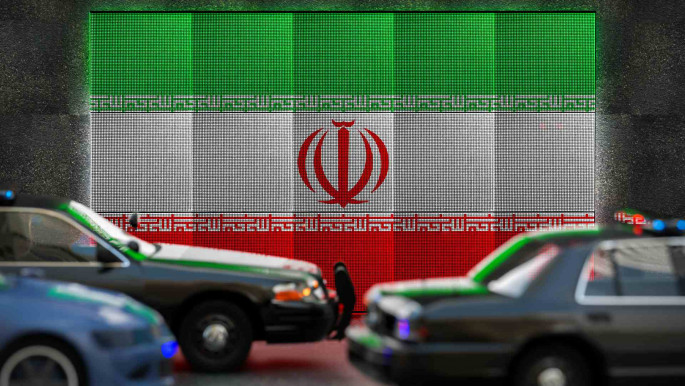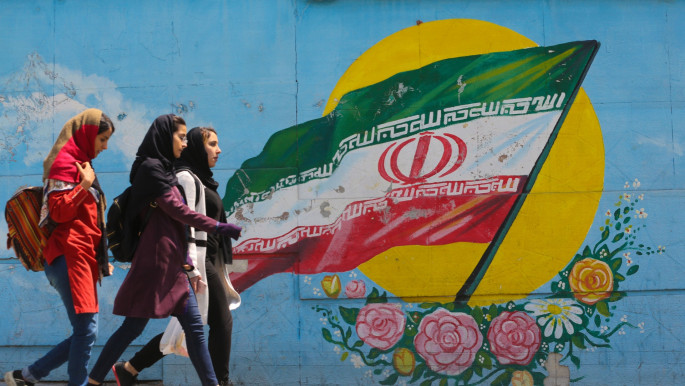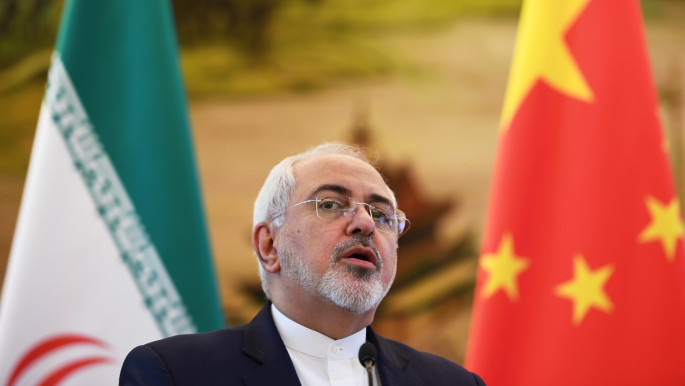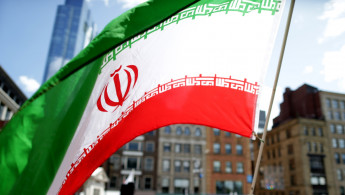US pressure pushes Iran into China and Russia's arms
Washington has also recently upped the ante at the United Nations Security Council (UNSC) as a UN arms embargo nears its expiry date in October, seeking to extend, and even increase, sanctions.
Consequently, in recent weeks Tehran has edged closer to Beijing and Moscow and tried to respond with some pressure building tactics of its own to put Washington in a corner.
An important 25-year strategic partnership has reportedly been agreed with China while a previous 20-year deal with Russia is to be renewed. Since then, Iran has been in the limelight and Washington is being blamed for pushing Tehran into China and Russia's arms with its 'maximum pressure' campaign.
Tehran has often conveyed that it has other options if the US does not show leniency. Pushed to the limit as its troubles multiply with sanctions and the ongoing Covid-19 pandemic, Iran is ready to take risks.
Mulling over long-term deals with both Russia and China at the same time, Iran would like to signal a change in its foreign policy while it pushes for a coalition against Washington's political and economic pressure.
 |
Tehran has edged closer to Beijing and Moscow, responding to Washington with some pressure building tactics of its own |  |
In 2019, Iran participated in naval exercises with Russia and China in an unprecedented move. With the most recent developments, it would seem Iran has finally decided to 'look East', even if the immediate objective is to avoid economic sanctions and end the embargo. Nevertheless, two new bilateral partnerships could materialise.
For starters, an 18-page draft of the secret deal with Beijing has been leaked. Containing comprehensive details of a $400 billion, 25-year strategic alliance between China and Iran, this document became the centre of media attention. As the hype built up, the prospective agreement was even termed as a major geopolitical shift and the beginning of a new era by some experts.
 |
|
| Explainer: What is the 'Iran-China comprehensive strategic partnership'? |
Specifying around 100 projects ranging from infrastructure development, special economic zones, oil subsidies, transport and energy to military co-operation, the leaked information seemed to suggest that China was planning to abandon its traditional, peaceful stance and intended to support Iran both militarily and economically in the long term.
However, with the passage of time the deal does not seem like a game changer, as China is quiet and is obliged to keep a balance between its trade partners. Eventually, the strategic deal may not be much different from the partnership agreements Beijing has with 15 other countries in the region, ranging from Djibouti, Morocco, and the GCC states to Turkey.
Instead of affirming such a strategic deal with Iran, China has not even acknowledged the details described in the draft report. It has not been treated like an urgent or important matter as the agreement was last discussed between the Chinese and Iranian leadership in 2016 but no action was taken.
Nearly four years on the terms and conditions are being discussed, and, once final, the draft must be passed by parliament and the entire process could take till 2021. The painstakingly slow pace seems to suggest it will be a routine trade agreement.
 |
Iran has finally decided to 'look East', even if the immediate objective is to avoid economic sanctions and end the embargo |  |
Interestingly, a former Chinese ambassador to Iran, Mr Hua Liming, recently told the Straits Times that "this is something that has been stirred up by the Iranians and turned into a political problem," adding that all the unfair trade deals being debated by critics "go against the spirit of Chinese diplomacy."
Meanwhile, the Chinese foreign ministry has been dismissing questions about the deal for a while, and spokesman Zhao Lijian has only commented that both countries have good working relations. Another significant factor is that China is mindful of US sanctions as it has decreased its oil trade with Iran over the last year.
And once again, in response to questions about the recent China-Iran strategic deal, a State Department spokeswoman reminded Beijing that "the United States will continue to impose costs on Chinese companies that aid Iran."
 |
|
| Read more: Will the UN arms embargo on Iran be extended? |
She also added that "by allowing or encouraging Chinese companies to conduct sanctionable activities with the Iranian regime, the Chinese government is undermining its own stated goal of promoting stability and peace." Next, there is the Russian deal.
Soon after the leaks about the partnership with China, the Iranian Foreign Minister, Javad Zarif visited Russia for the third time in six months. Once again, there was talk of renewing a 20-year agreement between Iran and Russia as another "long-term deal". Zarif termed Russia-Iran relations as "strategic", just like the prospective 25-year comprehensive cooperation agreement with Beijing.
Unlike the leaked draft of the deal with China, the contents of the updated 20-year deal with Russia are not yet known but the previous 2001 deal between Tehran and Moscow had included nuclear cooperation. In addition, Zarif referred to the "identical views" between Russia and Iran regarding the JCPOA.
 |
Tehran has often conveyed that it has other options if the US does not show leniency |  |
In the meantime, Iranian envoy in Russia, Kazem Jalali, called upon both China and Russia to form an anti-sanctions club with Iran in order to withstand pressure from Washington. Sharing the concept, he has said that it is "high time we created a club of countries hit by sanctions," and that, "among its members will be many strong powers with developed economies: Russia, China and Iran."
Since both Russia and China are also facing US sanctions, Jalali observed that Iran has "something to offer" them both and with joint efforts they could all "overcome US pressure."
 |
|
| Read more: China and Iran's strategic partnership: A zero sum game? |
Ultimately, however, such a one-sided foreign policy might prove restrictive to Iran, which had succeeded in balancing ties with the East and West with the JCPOA just five years ago. The simplest way to avoid sanctions would have been to start negotiations to upgrade the JCPOA, but Iran seems to be taking matters in the opposite direction.
Meanwhile, the US is banking on utilising a sanction snapback clause under the nuclear deal which it can avail even after leaving as it is still named as a participant as per the 2015 UN resolution. Therefore, Russia and China have started making the case to oppose Washington's efforts to trigger off a resumption of all sanctions on Iran at the UNSC.
Unfortunately, Iran has been exceeding uranium purification limits and breached some clauses of the JCPOA so these pressure tactics may not solve the problem
If the sanctions are extended, access to the international banking system could be discontinued for any companies doing business with Iran, which is already in dire economic straits. This move would scare away foreign investment at a time when Iran requires as much as $186 billion in the petrochemical industry and upstream oil sector.
Sabena Siddiqui is a foreign affairs journalist, lawyer and geopolitical analyst specialising in modern China, the Belt and Road Initiative, Middle East and South Asia.
Follow her on Twitter: @sabena_siddiqi


![President Pezeshkian has denounced Israel's attacks on Lebanon [Getty]](/sites/default/files/styles/image_684x385/public/2173482924.jpeg?h=a5f2f23a&itok=q3evVtko)



 Follow the Middle East's top stories in English at The New Arab on Google News
Follow the Middle East's top stories in English at The New Arab on Google News


